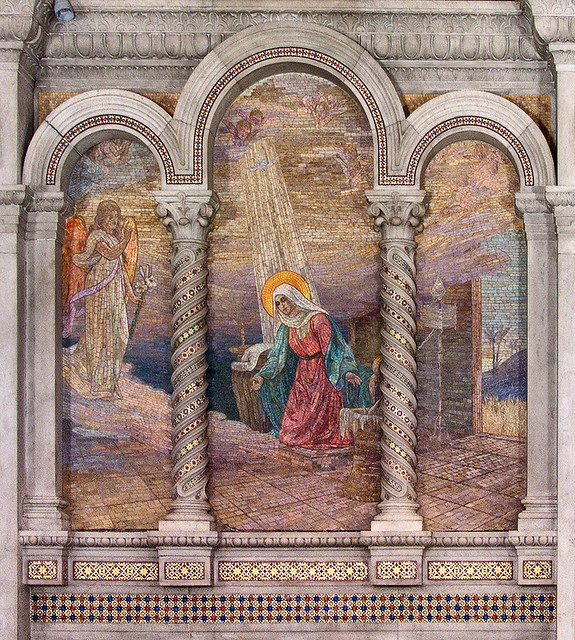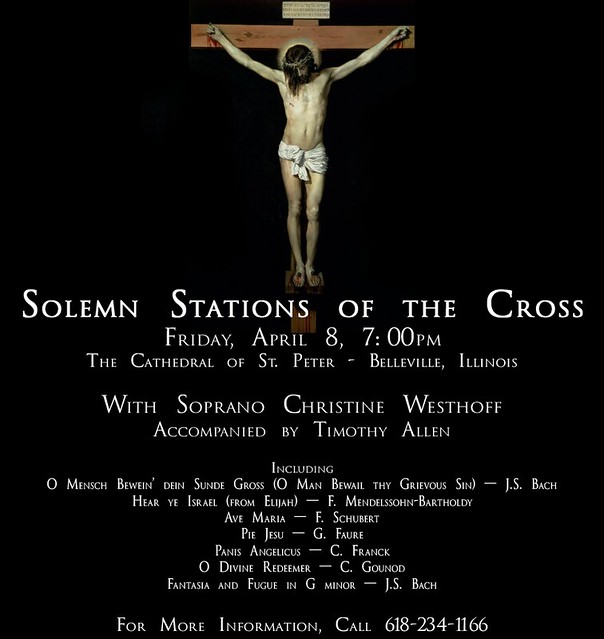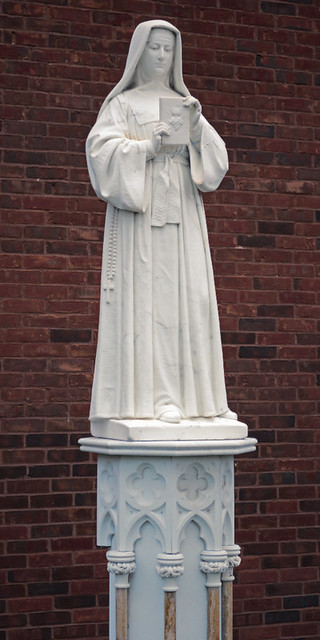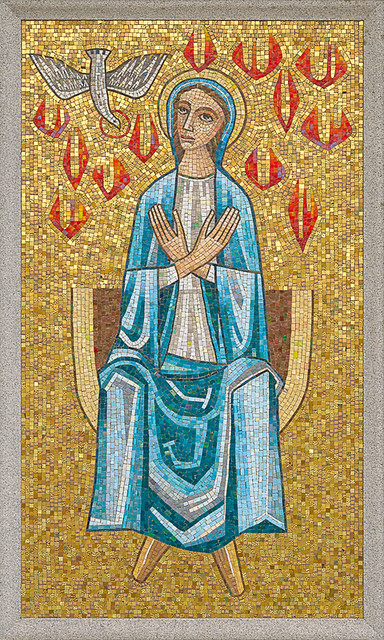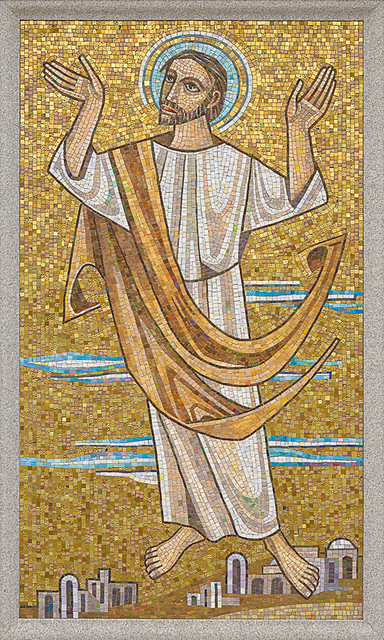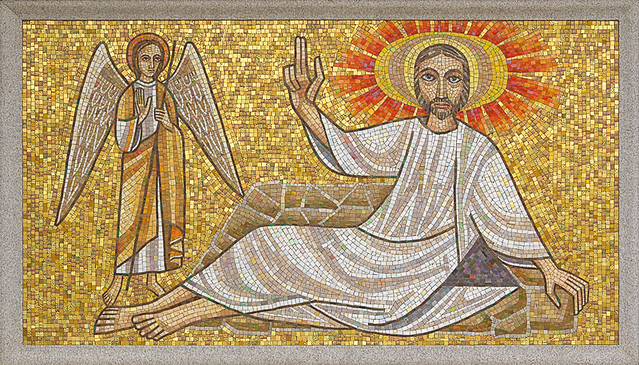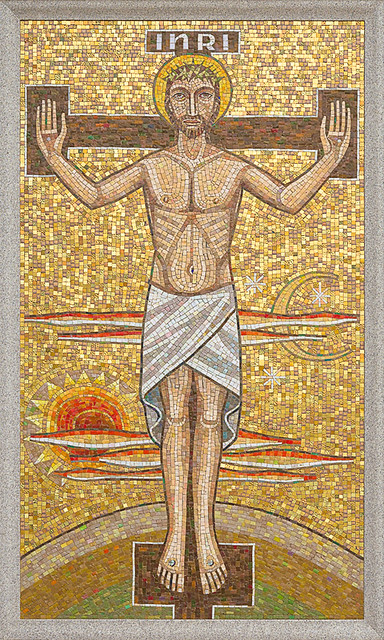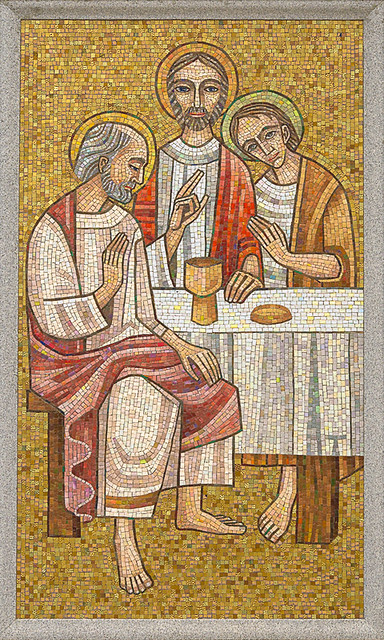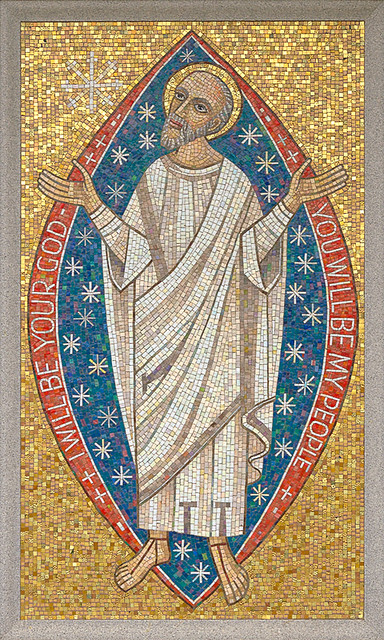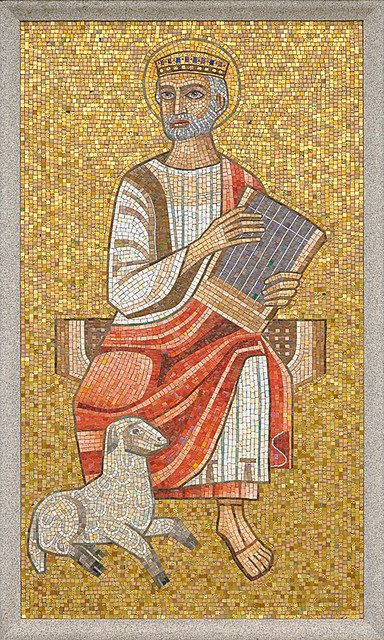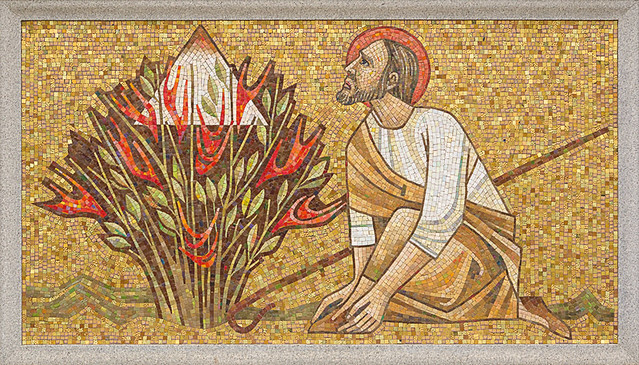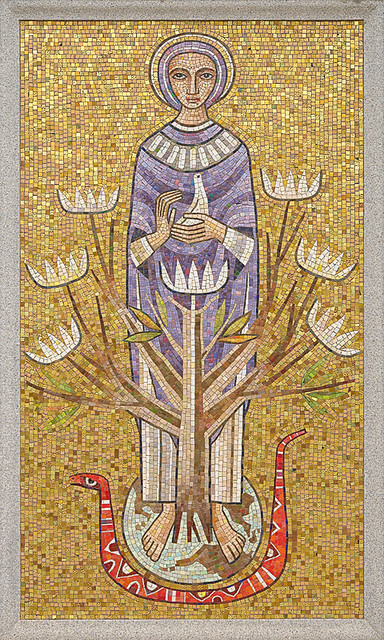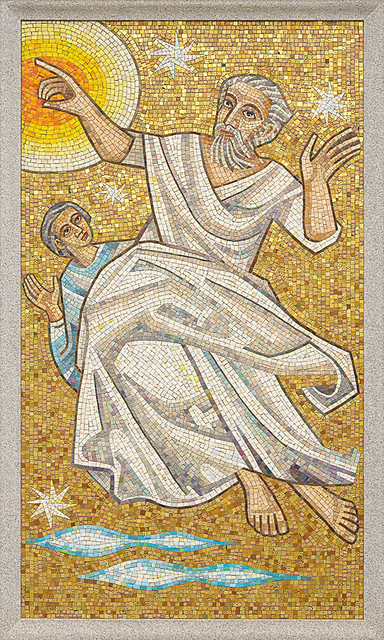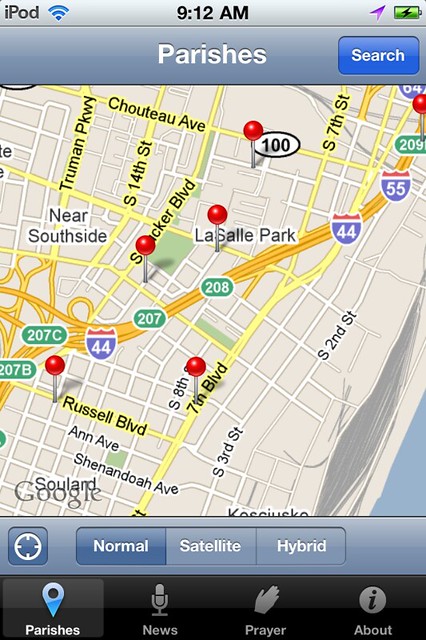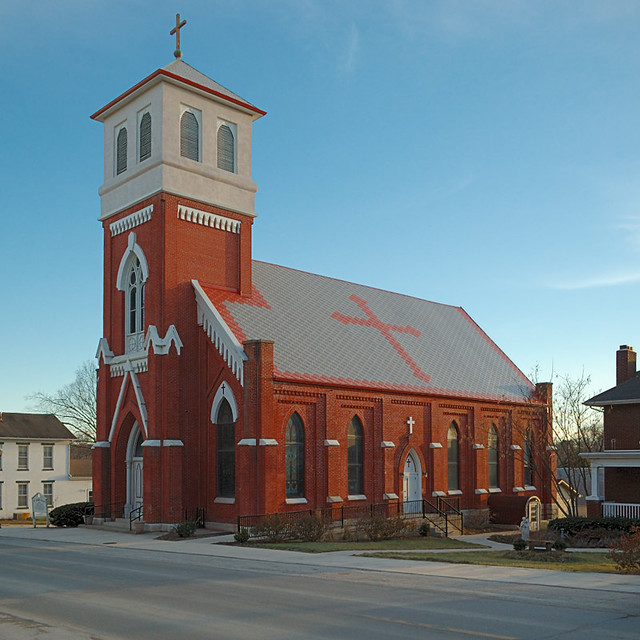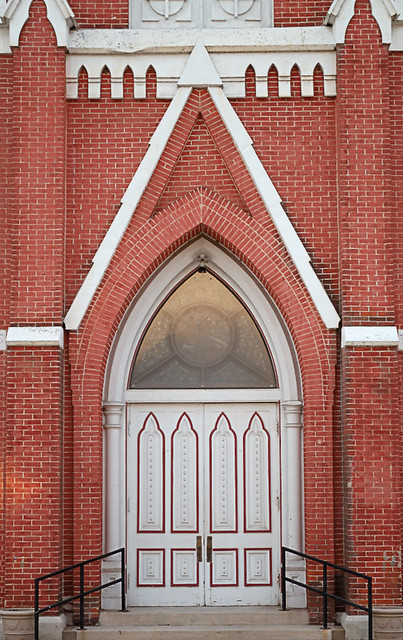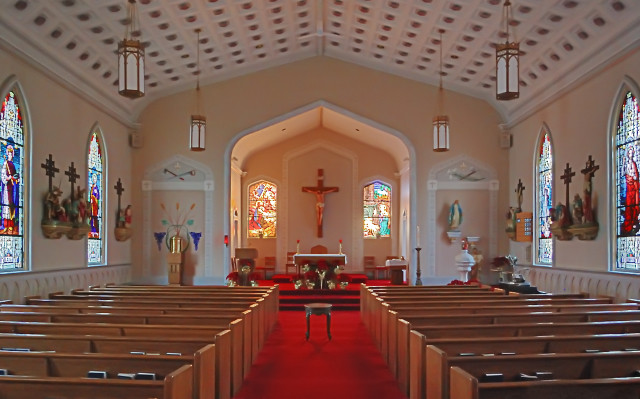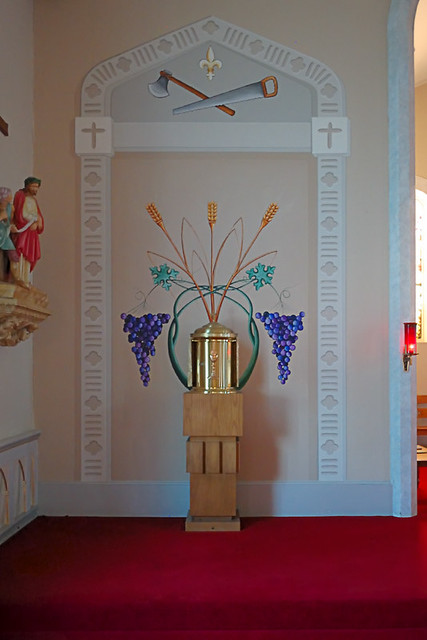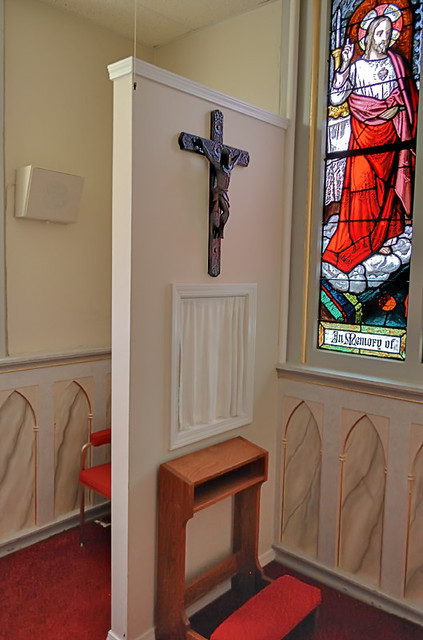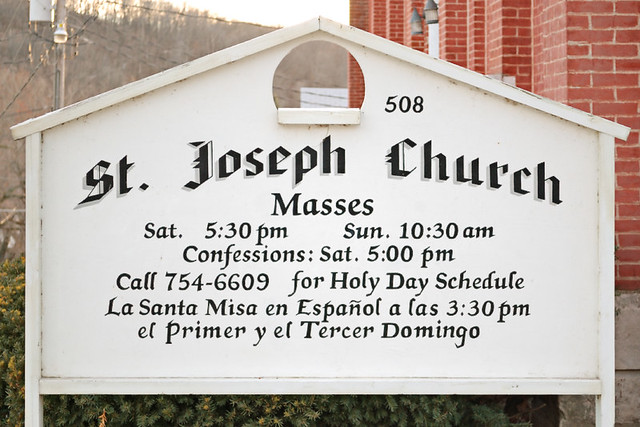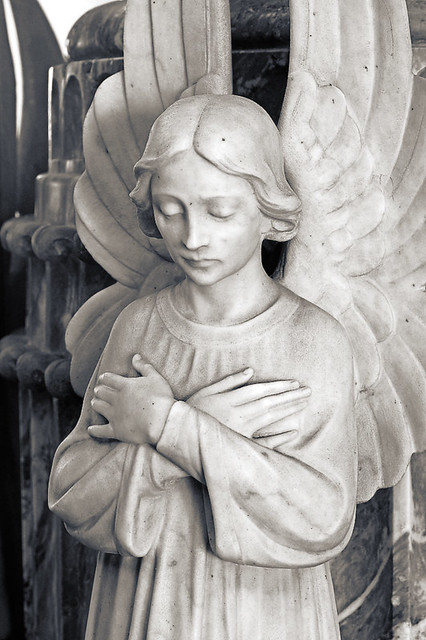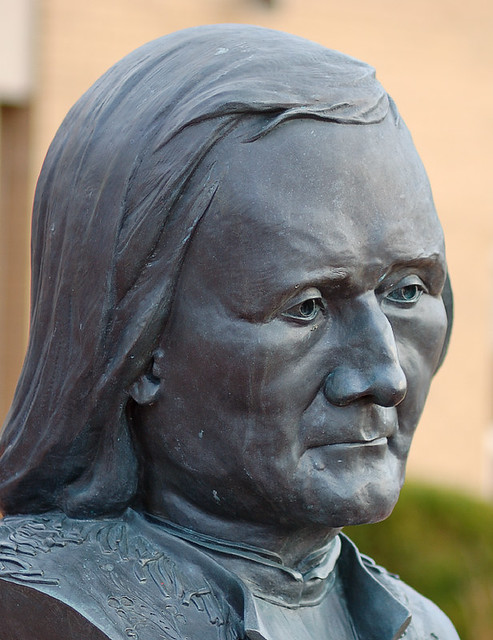MARDI GRAS is huge here in Saint Louis. Established back sometime in the 1970s, it has become a large celebration, attracting hundreds of thousands of people to the old Soulard neighborhood of the city. This carnival is in remembrance of the old French heritage of the city, and it imitates the celebrations found in New Orleans, Louisiana, which is downstream from us on the Mississippi River.
Like New Orleans, the Saint Louis celebrations have an obscene character. Despite —
or because? — of this, Mardi Gras is supported and sponsored by the city government, local corporations, and civic groups. It's good for tourism, they say. I say it's bad for your soul.
But the reason behind Carnival, and its final day, Mardi Gras, was the observance of the severe penances of Lent. Undoubtably a little celebration is called for before spending forty days spiritually in a desert, which is a time for the penitential acts of prayer, fasting, and almsgiving. But the Latin Church got rid of severe penances at the time just before Mardi Gras became popular [Apostolic Constitution
Paenitemini, Pope Paul VI, 1966]. I've noticed many times that whenever the Church appears to give up something that is rightfully hers, someone else will take it for their own purposes.
It would be a severe mistake to think that the excesses of Carnival and Mardi Gras have anything to do with Catholicism, except in the most tangential and remote way. Do the revelers observe Lent? The New Orleans Carnival (in its present form) was started by non-Catholic Americans of English descent. The Venice Carnival was reestablished in the 1970s by the staunchly anti-Catholic government of Italy, and the Rio de Janeiro Carnival was started by upper-middle class
bourgeois infused with Enlightenment ideas. Carnival, except in its most basic form of a moderate celebration, is not Catholic.
According to the Very Rev. Dom Prosper Guéranger:
[Lent] ... is the Church’s preparation for Easter, and was instituted at the very commencement of Christianity. Our Blessed Lord himself sanctioned it by his fasting forty days and forty nights in the desert; and though he would not impose it on the world by an express commandment, (which, then, could not have been open to the power of dispensation,) yet he showed plainly enough by his own example, that Fasting, which God had so frequently ordered in the Old Law, was to be also practised by the Children of the New.
The Disciples of St. John the Baptist came, one day, to Jesus, and said to him: Why do we and the Pharisees fast often, but thy Disciples do not fast? And Jesus said to them: Can the children of the bridegroom mourn, as long as the bridegroom is with them? But the days will come, when the bridegroom shall be taken away from them, and then they shall fast. [St Matth. ix. 14,15].
— The Liturgical Year
According to Guéranger, the observance of Lent dates as far back as Apostolic times, which is the very beginning, and continues the practices found among the Jews before Christ. Penance was originally quite severe, and over the centuries greater laxity appeared. Today, we have arrived at the low point, where little or no penance whatsoever is observed, for neither do Christians do not see any spiritual benefit to it, nor are we obliged to do much of it.
Pope Benedict XIV, in 1741, wrote:
The observance of Lent is the very badge of the Christian warfare. By it, we prove ourselves not to be enemies of the Cross of Christ. By it, we avert the scourges of divine justice. By it, we gain strength against the princes of darkness, for it shields us with heavenly help. Should mankind grow remiss in their observance of Lent, it would be a detriment to God’s glory, a disgrace to the Catholic religion, and a danger to Christian souls. Neither can it be doubted, but that such negligence would become the source of misery to the world, of public calamity, and of private woe.
— Encyclical Non ambigimus
Guéranger comments on this:
And must there not result from this ever-growing spirit of immortification, a general effeminacy of character, which will lead, at last, to frightful social disorders? The sad predictions of Pope Benedict the Fourteenth are but too truly verified. Those nations, among whose people the spirit and practice of penance are extinct, are heaping against themselves the wrath of God, and provoking his justice to destroy them by one or other of these scourges, - civil discord, or conquest.
A terrifying prophecy indeed. This Lent, let's try harder, and be more open to grace.




